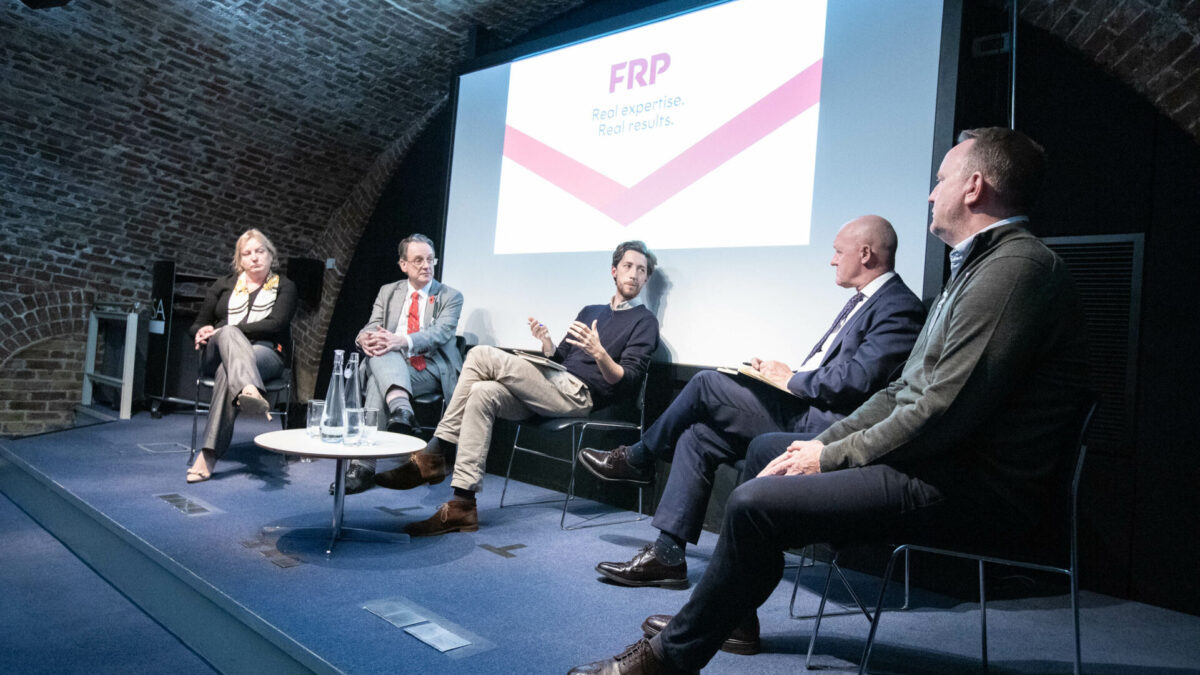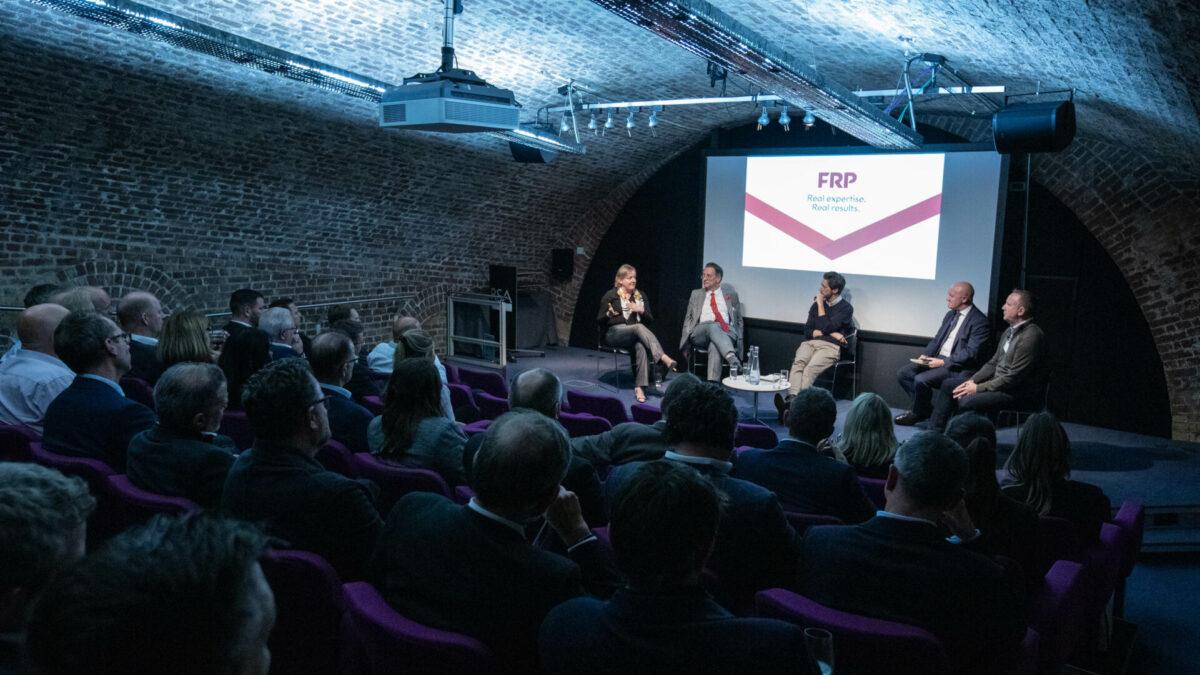Last week we hosted our first FRP Question Time event, centered around the predictions of the upcoming Autumn Statement announcement
Moderated by Andy Silvester, Editor at City A.M., the panel comprised Garry Wilson, Founder of Endless and Chair of the BVCA, Malcom Bacchus, Vice President of the ICAEW, Jean Murphy, CEO of Recognise Bank and David Hudson, Restructuring Advisory Partner at FRP.
Key themes explored included government support measures, Brexit, inflation rates, investment intentions and tax cuts – with panellists predicting the government’s roadmap for the UK’s financial direction, and examining how businesses can remain responsive, adaptable and versatile.

The economic landscape
Government support measures
The panellists discussed how the gradual withdrawal of pandemic-fuelled government loans indicates a level of economic stability and confidence, however, for some businesses, especially in the slower recovering sectors, the removal of these support schemes is expected to create a degree of financial strain.
It will be crucial for businesses to forecast and have a solid financial plan in place, remembering to be proactive instead of reactive when it comes to the changing landscape. Those that have already been proactive in adapting their business models are likely to weather the transition more smoothly.
Brexit and supply chains
Despite the prevalent after-effects of Brexit, the UK is remaining resilient to the ever-changing economic landscape, unstable trade relationships and evolving supply chains. The panel looked back at our latest sector series report, Against the odds: the future of manufacturing, discussing how the sector has adjusted to the new trading landscape.
The session also touched upon onshoring and how businesses are looking to set up production within national borders, likely as a result of the administrative Brexit burden, increasing geopolitical risks and the ripple effect of rising costs.
Investment intentions
In spite of the economy showing renewed signs of strain, international investors are still showing signs of interest to the UK market as a result of transparent laws and regulations, robust financial infrastructure and access to international capital markets and innovation.
Despite activity falling in 2022, the UK remains second behind France in the annual ranking of European countries by their ability to attract Foreign Direct Investment (FDI) projects, according to the EY 2023 UK Attractiveness Survey[1], offering comfortability to overseas venture capitalists.

Inflation rates
Conversation considered how the Bank of England has implemented 14 interest rate hikes since 2021 in an effort to manage inflation, but there are apprehensions that these increases may have had adverse effects on the economy.
The surge in government borrowing costs implies that the Treasury now has to allocate more funds to debt interest payments. This situation may result in reduced government resources for public services or present challenges in implementing tax cuts.
Tax cuts
Panellists explored rumours of a £10 billion reduction in business taxes as a measure to avoid a potential recession in the coming year, prompting an examination of additional areas that might feature in the government’s plans, such as stamp duty and inheritance tax.
Despite the current elevated tax burden in the UK, marked by heightened corporation tax, reduced allowances, and the freezing of personal tax thresholds until 2028, the consensus among many was that there is no anticipation of immediate tax cuts.
Infrastructure
A reoccurring topic was the required attention for public infrastructure, particularly where education, housing and health is concerned. Our experts examined the need for the Chancellor to deliver plans for stability, growth and public services, in a bid to help businesses find a secure foothold.
Attendees speculated over whether the decision to freeze income tax allowances and thresholds amid a period of elevated inflation, resulted in government revenues surpassing initial expectation – but the question remains – will the Chancellor commit to allocating £30 billion annually for the enhancement of public infrastructure?
The panel concluded that there are unlikely to be any dramatic tax cuts or generous funding proposals, so expect businesses to be closely monitoring the announcement to assess potential opportunities or challenges, and to seek certainty in the year ahead.
[1] Foreign Direct Investment: UK remains second in Europe despite a fall in projects | EY UK






